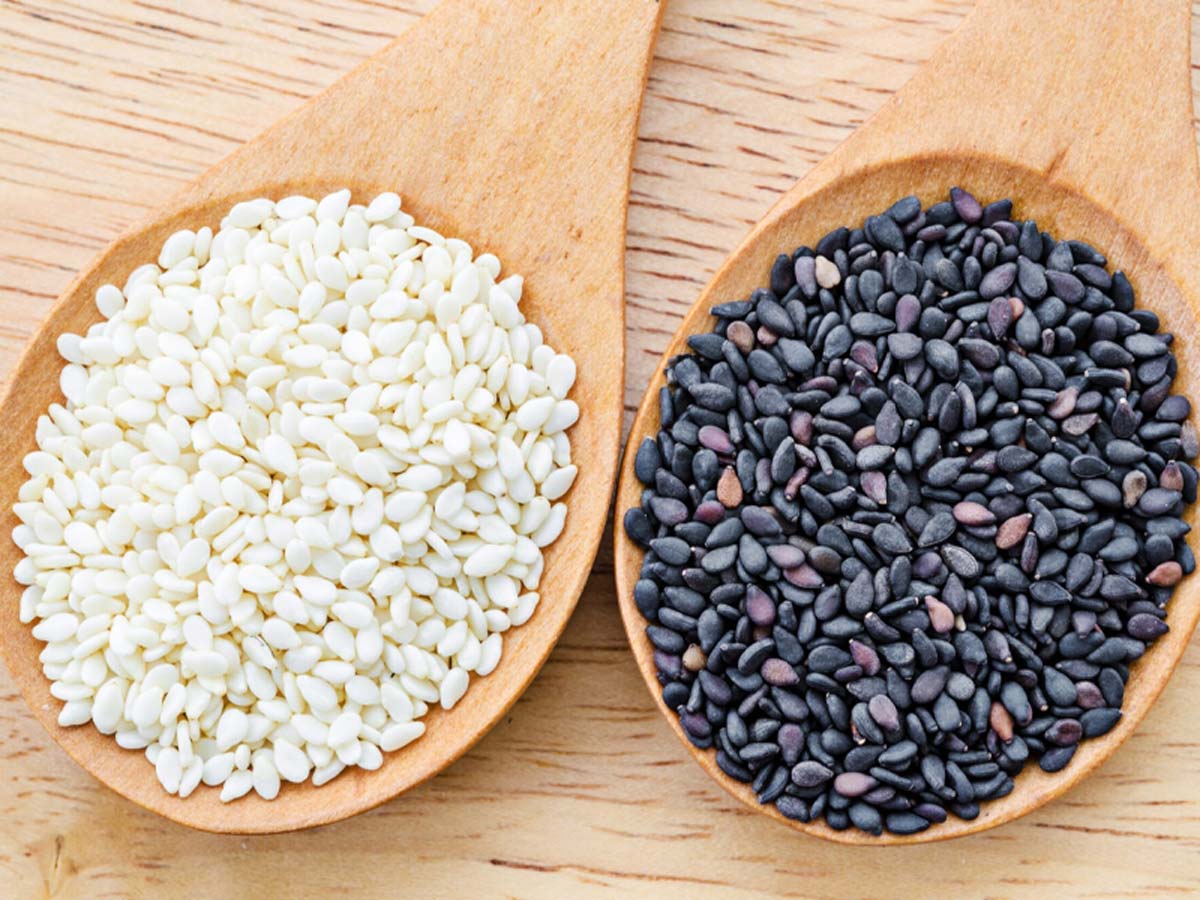Unlocking the Secrets of Sesame in Ayurveda: From Ancient Remedies to Modern Health

Many types of grains are cultivated in our country. “Sesame”(Tila) is a grain used to make oil. Sesame seeds are also a valuable part of the Ayurvedic diet. There are mainly 2 varieties of sesame like black sesame, white sesame.
Tila tailam is a type of Ayurvedic medicine that uses sesame seeds and oil to treat a variety of health conditions. Sesame seeds are a good source of vitamins, minerals, and antioxidants, and they do have anti-inflammatory, antibacterial, and antifungal properties. Sesame oil is also a good source of calcium, magnesium, and vitamin E. Sesame seeds can be eaten raw, roasted, or ground into a paste. It is a good moisturizer and nourishing for the skin.
In a traditional Ayurvedic practice, use of sesame oil and seeds to promote health and well-being. Sesame oil is said to be one of the most beneficial oils in Ayurveda, and it is used for a variety of purposes, including:
- Massage (abhyanga): Sesame oil is a popular choice for Ayurvedic massage, as it is said to be calming and nourishing for the skin.
- Shirodhara: Shirodhara is an Ayurvedic treatment that involves pouring a stream of warm sesame oil over the forehead. It is said to be relaxing and stress-relieving.
- Nasya: Nasya is an Ayurvedic treatment that involves administering sesame oil to the nostrils. It is said to be beneficial for sinus problems and headaches.
- Ear drops (karna pooranam): Sesame oil can be used as ear drops to relieve earaches and ear infections.
- Oil pulling (gandoosha): sesame oil is most used for oil pulling. It nourishes the gums and prevents decaying of the teeth.
Here are some of the additional benefits of Sesame in Ayurveda:
- Promotes skin health: Sesame oil is a natural moisturizer that can help to keep your skin soft, supple, and hydrated. It can also help to reduce the appearance of wrinkles and fine lines.
- Protein: Sesame seeds are rich in protein along with high quality amino acids. People who are below average body weight can gain proper body weight if they eat a small amount of sesame seeds daily. Increases physical energy.
- Digestion: Sesame seeds are rich in fiber. 30 grams of sesame seeds contain 3.5 grams of fiber. This is 12% of the recommended daily intake. Constipation will be regular and digestive problems will be removed by consuming sesame seeds daily.
- Bones: A handful of sesame seeds contains more calcium than a glass of milk. Sesame seeds contain zinc and copper. It helps improve bone density. Defects like weakening of bones and wear and tear of joints can also be overcome by regular consumption of sesame seeds
- Improves hair health: Sesame oil can help to nourish and strengthen your hair, and it can also help to prevent hair loss.
- Boosts immunity: Sesame seeds are a good source of zinc, which is essential for a healthy immune system.
- Reduces stress: Sesame oil is a natural relaxant that can help to calm the mind and body.
- Promotes sleep: Sesame oil can help to improve sleep quality.
It can be consumed by everyone, generally it is safe for most people. However, it is important to talk to your doctor before using sesame, especially if you are pregnant, breastfeeding, or taking any medications.
Related Articles
Revitalize with Ginger: Nature’s Fire for Health and Flavour
In Ayurveda, ginger (known as "Adraka" in Sanskrit) is highly valued for its therapeutic properties and is considered one of the most versatile herbs. Balancing Doshas: Adraka (ginger) is considered to have a heating or warming effect, making it particularly...
Broccoli Brilliance: Harnessing Nature’s Medicine Cabinet
Broccoli is rich in antioxidants such as vitamin C, beta-carotene, and various flavonoids. These compounds help neutralize harmful free radicals in the body, reducing oxidative stress and inflammation, and potentially lowering the risk of chronic diseases like cancer...
Irritable Bowel Syndrome: Can be Cured!!!
IBS can be like a temperamental tummy! Doctors figure it out by listening to your symptoms, not with a fancy test. The first approach often involves what you eat and how you manage stress. This might mean cutting out certain foods or following a specific diet like low...



